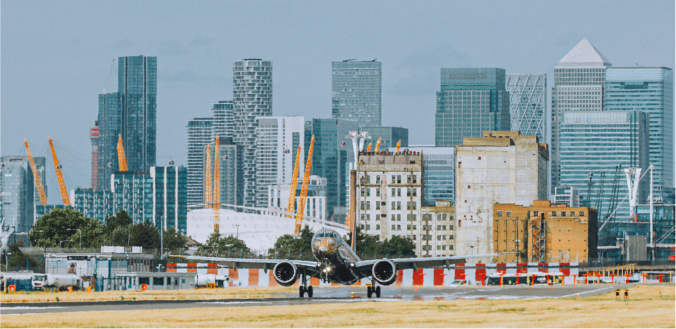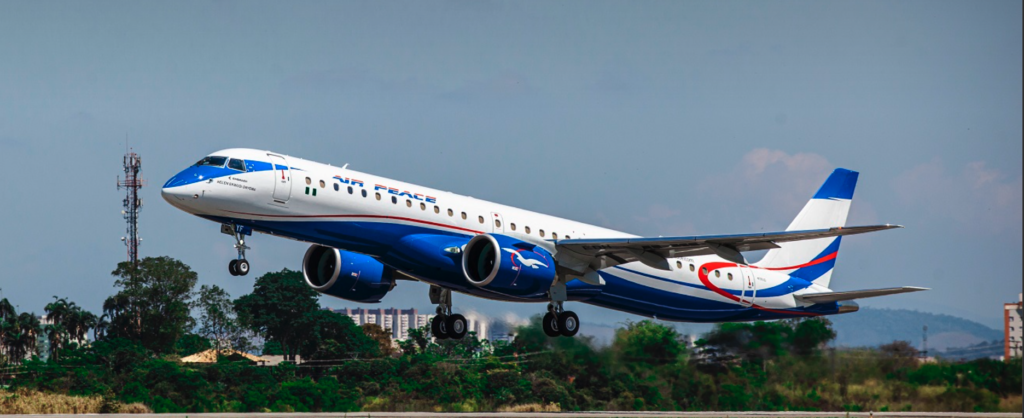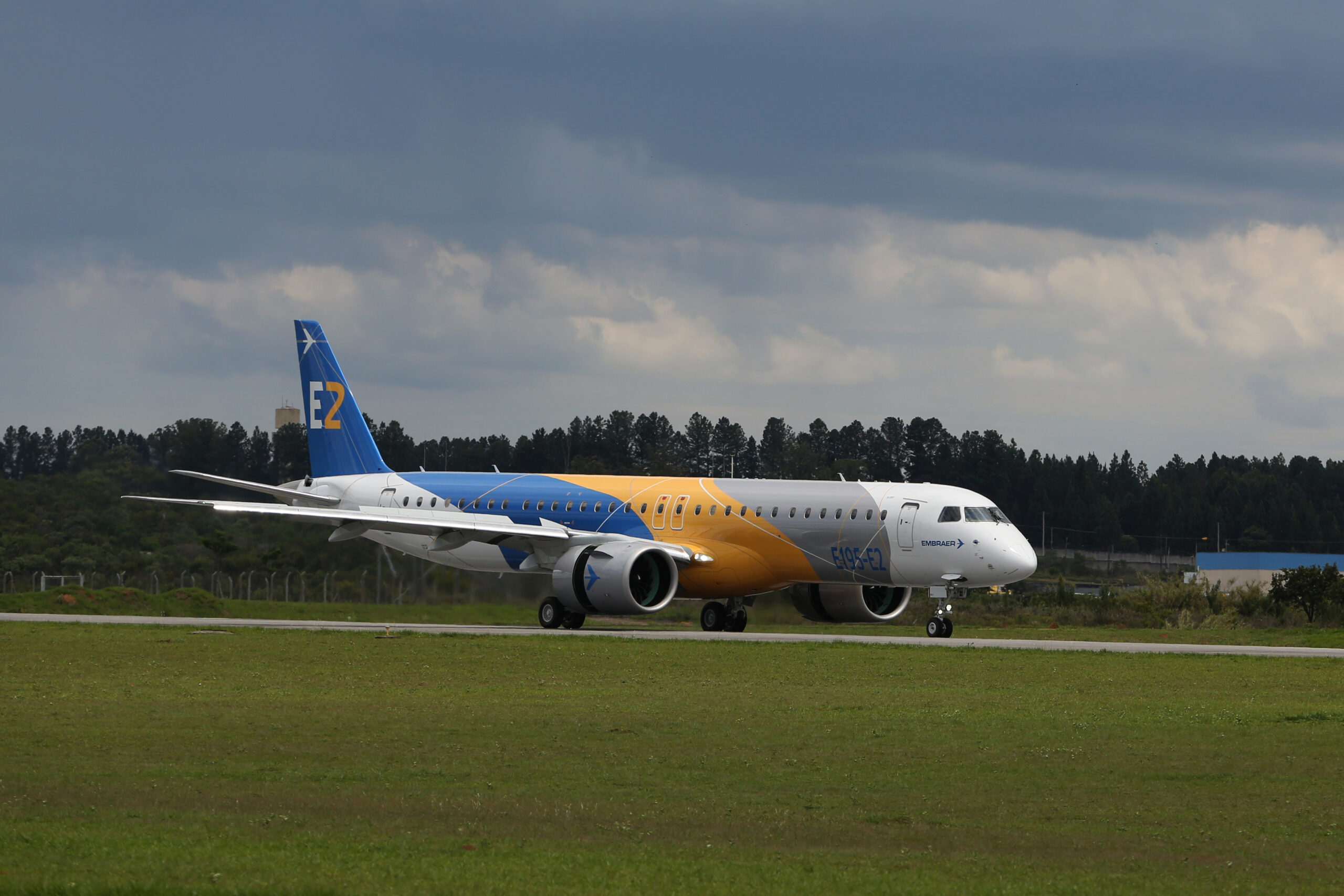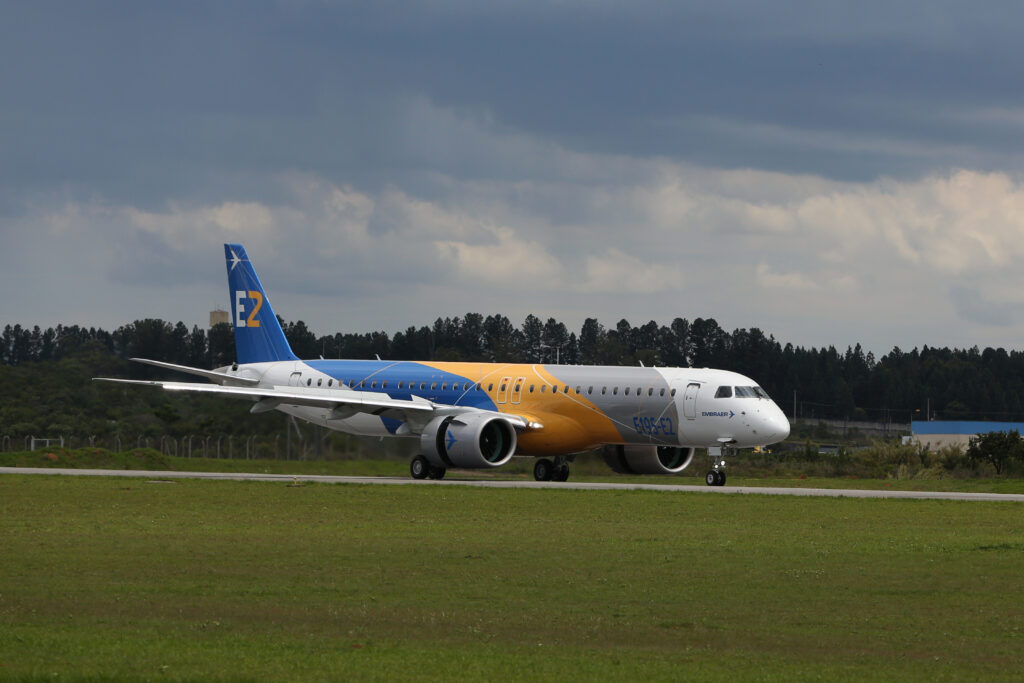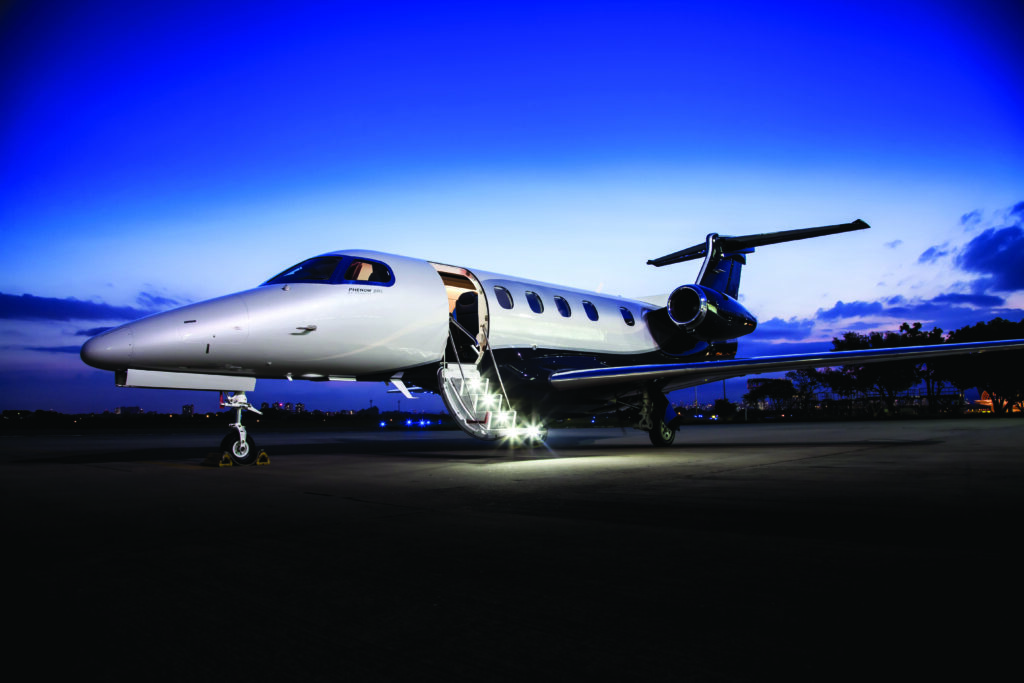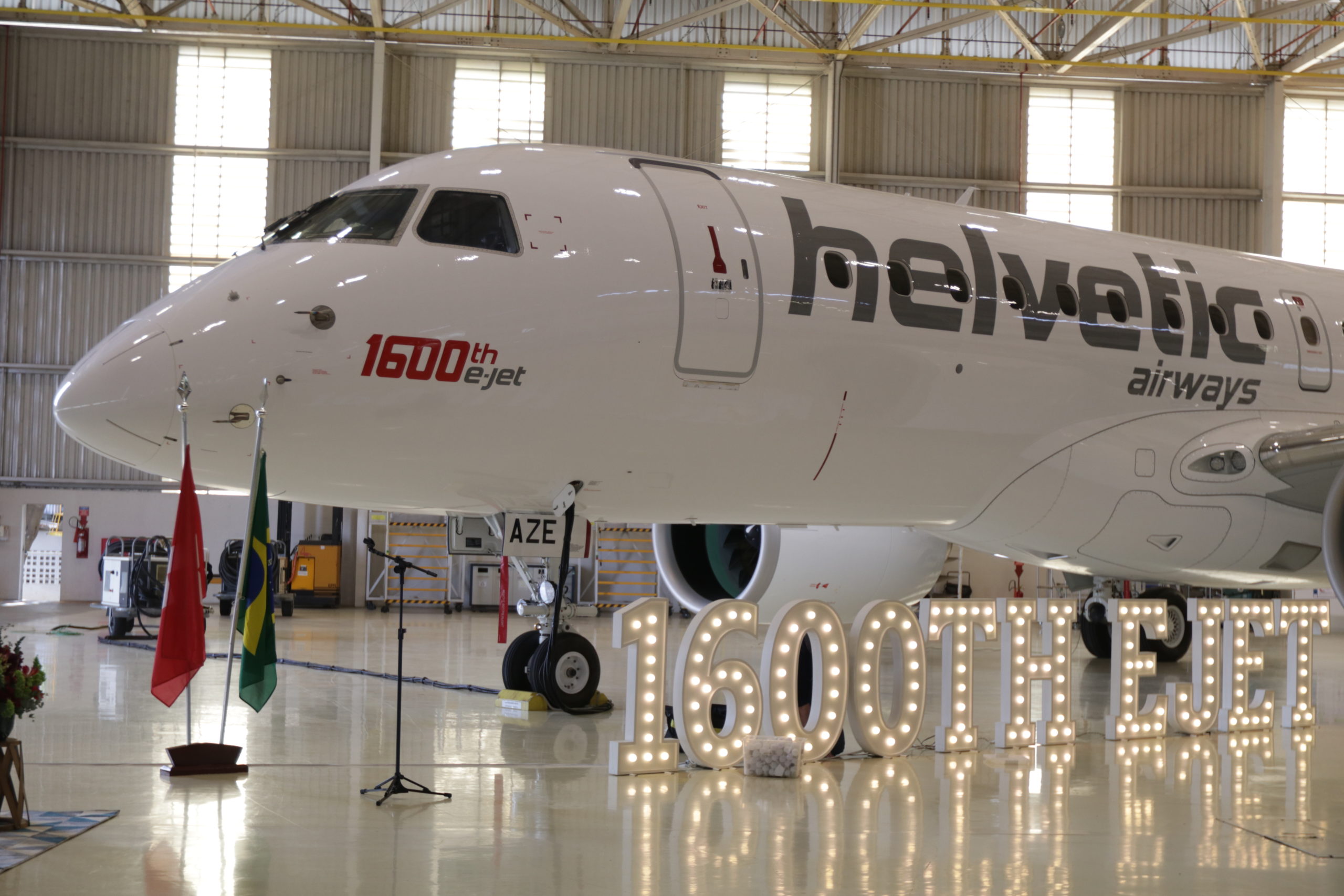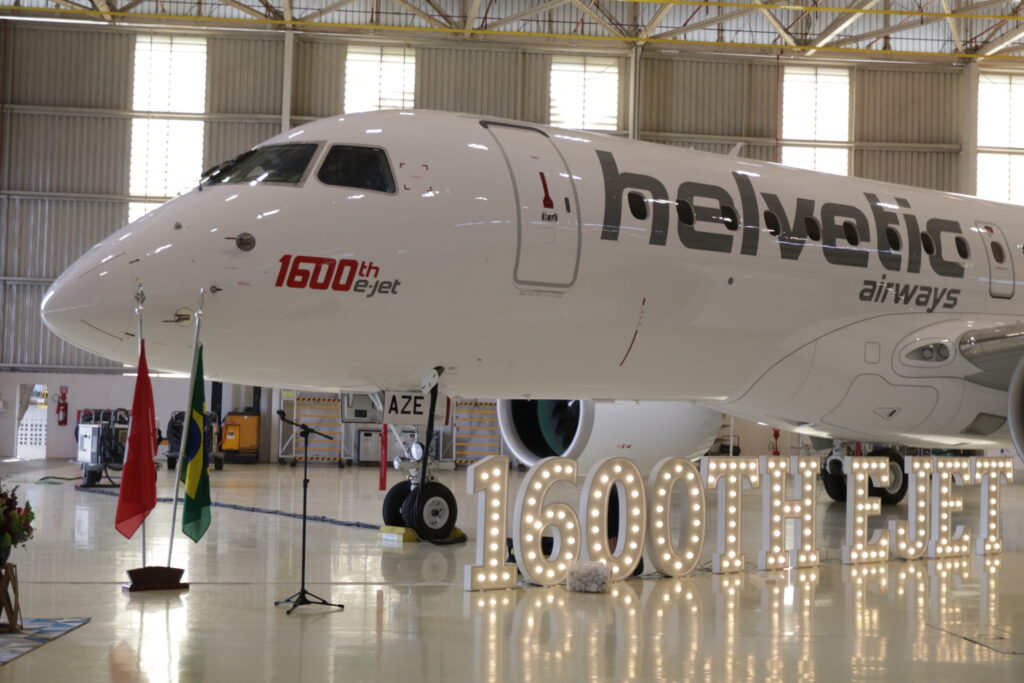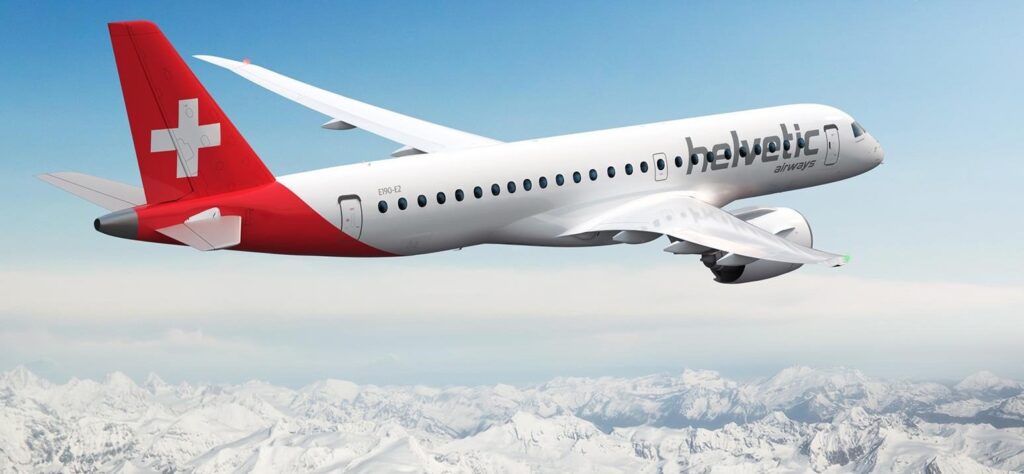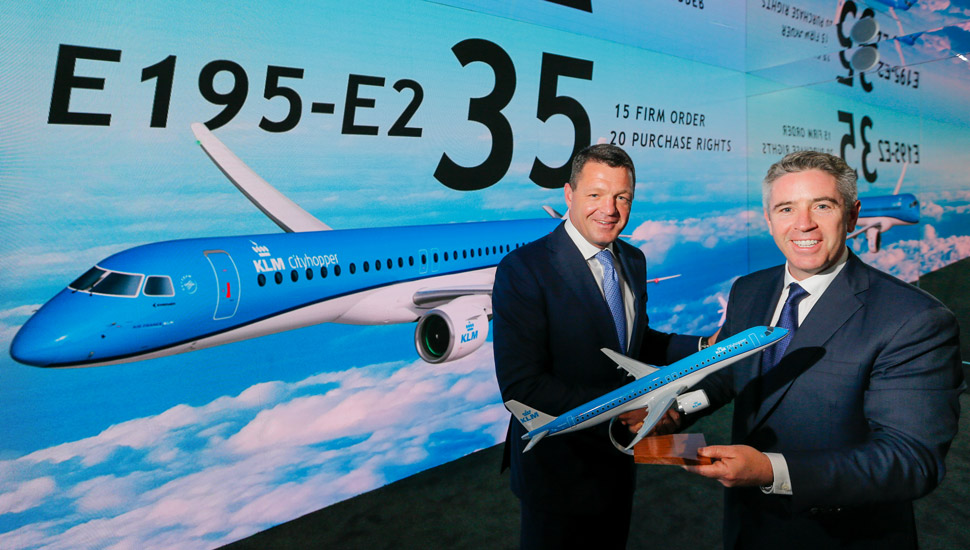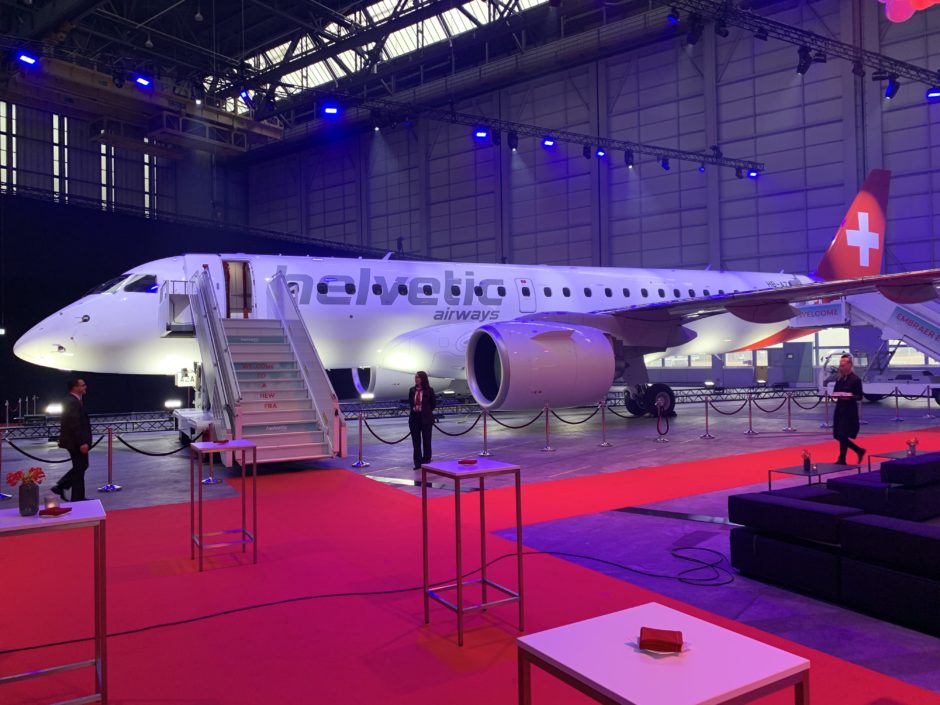Sao Jose Dos Campos, Brazil, November 10, 2023 – The Embraer SA (NYSE: ERJ) most advanced jet aircraft the E195-E2, has received certification for Steep Approach into London City Airport from EASA (European Aviation Safety Agency). This achievement is a significant development, allowing airlines to operate the E195-E2 at London City Airport (LCY), known for its challenging approach and short runway. Together with the E190-E2, which received Steep Approach certification in 2021, both members of the E2 family are now approved for operations from LCY.
The certification process highlighted the E195-E2’s impressive noise reduction among new generation single-aisle aircraft. It surpasses the requirements of ICAO’s strict Chapter 14 regulation, thereby offering a significantly quieter flying experience compared to the previous E195 model. The E195-E2’s noise footprint at take-off is around 60% smaller than current jet aircraft, such as the E190, and will bring benefits to local residents in terms of noise reductions. The E195-E2’s environmental performance extends beyond noise reduction. The aircraft delivers reduced emissions and improved fuel efficiency compared to previous generation aircraft. In 2022, Embraer and Pratt & Whitney demonstrated a successful test flight of an E195-E2 aircraft using 100% Sustainable Aviation Fuel (SAF), which could push the emissions reduction up to 85% in future.
During a proving flight, the E195-E2 first landed at the airport in July 2022. LCY, London’s most central airport, caters to both business and leisure passengers, offering quick access to continental Europe, making it a preferred choice for short-haul flights. The airport is a vital component of London’s wider connectivity and Embraer aircraft are uniquely able to manage the challenges of LCY operations, with Embraer aircraft accounting for a large proportion of LCY operations on routes as diverse as Edinburgh and Mykonos. To serve LCY, aircraft must comply with the steep approach, short runway, and stringent noise regulations. The E195-E2 could replace the current E190 fleet that existing airlines currently operate at LCY.
Forward-Looking Statements
This press release contains forward-looking statements within the meaning of the Private Securities Litigation Reform Act of 1995, including expected delivery dates. Such statements are based on current expectations and projections about our future results, prospects and opportunities and are not guarantees of future performance. Such statements will not be updated unless required by law. Actual results and performance may differ materially from those expressed or forecasted in forward-looking statements due to a number of factors, including those discussed in our filings with the Securities and Exchange Commission.
